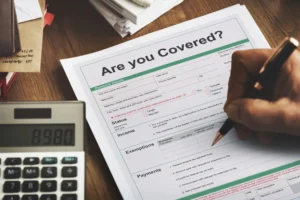Protecting your home with the right insurance is essential. But many people make decisions based on outdated or incorrect information. People who believe these myths may not have the right insurance or may not know what their policy actually covers. Knowing the most common home insurance myths can help you make better decisions and avoid mistakes that can lead to major losses.
Myth: Your homeowners insurance covers all losses
A common misconception is that basic home insurance covers all types of damage and loss. In fact, there are exceptions to most of the rules. Typically, you need additional insurance coverage for natural disasters like storms and hurricanes. Damage caused by negligence or normal wear and tear is also not covered. You may feel safe in the knowledge that your insurance will cover all losses, but you could be left with a major loss if something unexpected happens.
Myth: The value of a home and the cost of rebuilding it are the same
Many homeowners assume that their insurance covers the full value of their home. But the essence of insurance is that it covers the cost of rebuilding a home, not its selling price. Land and location affect market value, but do not change the cost of rebuilding. If your insurance is based on market value, you may not be able to fully rebuild your home after a major loss.
Myth: All home insurance policies cover water damage
One of the most common ways that property can be damaged is through flooding. However, most home insurance policies do not cover flooding. Many people do not realize this until after they have experienced a flood. If you live in an area with a high or moderate risk of flooding, you may want to consider purchasing separate flood insurance for your home and contents.
Myth: Regular insurance covers all my possessions
Homeowners insurance protects your personal belongings, but items such as gold, electronics, and artwork often have limited coverage. If you own expensive items, you may need additional insurance or scheduled personal property coverage to fully cover them. If you assume your belongings are already insured, you might incur additional costs after a loss.
Myth: Renters Don’t Need Insurance
It’s often assumed that renters don’t need insurance because they don’t own the property. However, renters insurance can protect your personal belongings, cover your liabilities, and even pay for temporary housing if your rental property is damaged and uninhabitable. The landlord is responsible for the property itself, not the tenant’s belongings.
Myth: Homeowner’s Insurance Covers Your Home-Based Business
If you run a business from home, you may think that your homeowner’s insurance covers it. Unfortunately, most insurance policies don’t cover the tools and risks involved in this type of work. To get sufficient coverage, you may need to purchase additional insurance or surety bonds for your business. If you don’t have one, your home insurance company may not cover claims related to your business.
Myth: If you make a claim, your premium will go up
Many people worry that their insurance premium will go up if they make a claim. The type of claim, your previous claims history, and the insurance company’s rules all affect whether you get a settlement. If you don’t make the required claims, you could end up paying more for repairs. Make sure you compare the amount of the loss to your deductible and talk to your insurance company about how the damage could affect your premium.
Myth: You don’t need to renew your policy until it expires
Your insurance needs evolve as you undergo changes. Your insurance may require adjustments if you make changes to your home, purchase expensive items, or alter your home’s usage. Renewing your policy without updating it could result in underinsurance or no coverage. You should review your policy regularly to ensure it matches the changes in your life and finances.
Myth: The cheapest plan is always the best option
It can be tempting to opt for the cheapest plan, but cheaper doesn’t always mean better. Cheap insurance may not offer much coverage, be expensive, or have poor customer service. In severe cases, this discount insurance may not be enough. It’s not enough to simply compare prices.




